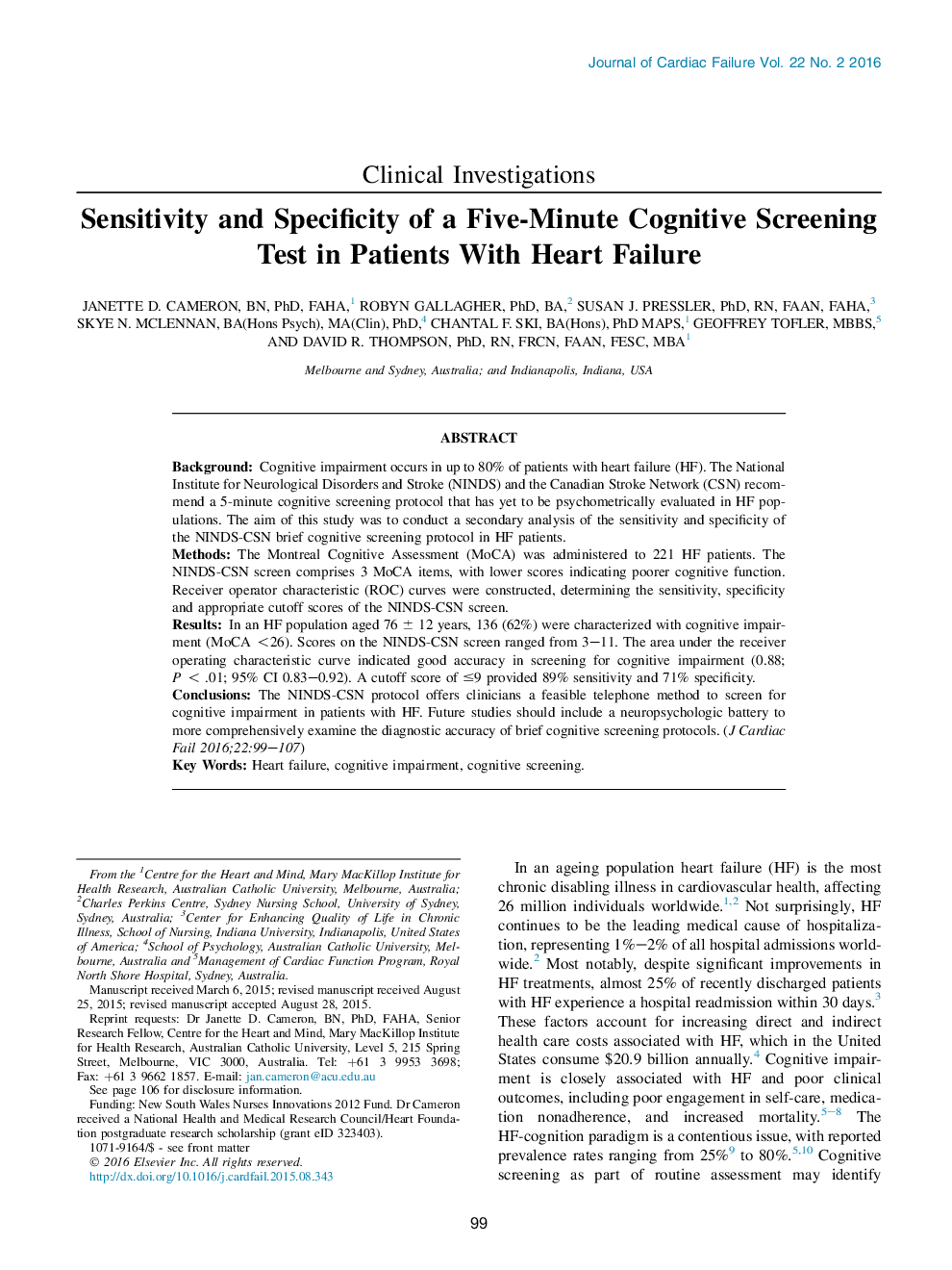| Article ID | Journal | Published Year | Pages | File Type |
|---|---|---|---|---|
| 2958452 | Journal of Cardiac Failure | 2016 | 9 Pages |
•Cognitive screening of heart failure patients is warranted in clinical practice.•Easily administered brief cognitive screening methods will assist clinicians.•Psychometric evaluation of brief cognitive screening protocols are warranted.
BackgroundCognitive impairment occurs in up to 80% of patients with heart failure (HF). The National Institute for Neurological Disorders and Stroke (NINDS) and the Canadian Stroke Network (CSN) recommend a 5-minute cognitive screening protocol that has yet to be psychometrically evaluated in HF populations. The aim of this study was to conduct a secondary analysis of the sensitivity and specificity of the NINDS-CSN brief cognitive screening protocol in HF patients.MethodsThe Montreal Cognitive Assessment (MoCA) was administered to 221 HF patients. The NINDS-CSN screen comprises 3 MoCA items, with lower scores indicating poorer cognitive function. Receiver operator characteristic (ROC) curves were constructed, determining the sensitivity, specificity and appropriate cutoff scores of the NINDS-CSN screen.ResultsIn an HF population aged 76 ± 12 years, 136 (62%) were characterized with cognitive impairment (MoCA <26). Scores on the NINDS-CSN screen ranged from 3–11. The area under the receiver operating characteristic curve indicated good accuracy in screening for cognitive impairment (0.88; P < .01; 95% CI 0.83–0.92). A cutoff score of ≤9 provided 89% sensitivity and 71% specificity.ConclusionsThe NINDS-CSN protocol offers clinicians a feasible telephone method to screen for cognitive impairment in patients with HF. Future studies should include a neuropsychologic battery to more comprehensively examine the diagnostic accuracy of brief cognitive screening protocols.
